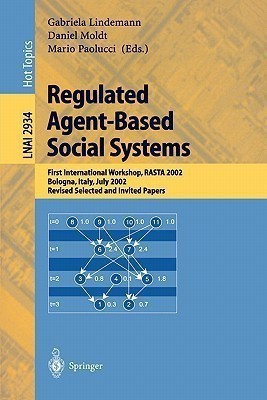Regulated Agent-Based Social Systems(English, Paperback, unknown)
Quick Overview
Product Price Comparison
Thisvolumepresentsselected,extendedandreviewedversionsofthepapersp- sented at the 1st International Workshop on Regulated Agent Systems: Theory and Applications (RASTA 2002), a workshop co-located with the 1st Internat- nalJointConferenceonAutonomousAgentsandMulti-AgentSystems(AAMAS 2002), which was held in Bologna, Italy, in July, 2002. In addition, several new papers on the workshop theme appear here as the result of a further call for participation. Agent-technology is the latest paradigm of software engineering methodology. The development of autonomous, mobile, and intelligent agents brings new ch- lenges to the ?eld. Agent technologies and multiagent systems are among the most vibrant and active research areas of computer science. At the same time commercialapplicationsofagentsaregainingattention.Theconstructionofar- ?cial (agent) societies leads to questions that already have been asked for human societies. Computer scientists have adopted terms like emerging behavior, se- organization,andevolutionarytheoryinanintuitivemanner.Multiagentsystem researchershavestartedtodevelopagentswithsocialabilitiesandcomplexsocial systems.However, most of these systems lack the foundation of the social sciences. The intention of the RASTA workshop, and of this volume, is to bring together researchers from computer science as well as the social sciences who see their common interest in social theories for the construction and regulation of mul- agent systems. A total of 17 papers appear in this volume, out of 31 papers submitted. Theyincludeninepaperspresentedintheworkshop(whosepreproceeedingswere published as Communications Vol. 318 Mitteilung 318 of Hamburg University, Faculty of Informatics), as well as six new papers. In addition, an invited paper from Bruce Edmonds re?ects some aspects of the lively discussions held during the workshop. The selection presented is divided into two major topics.


